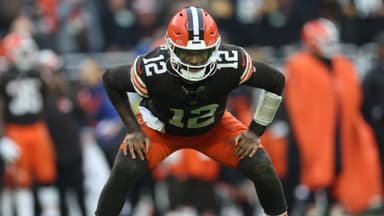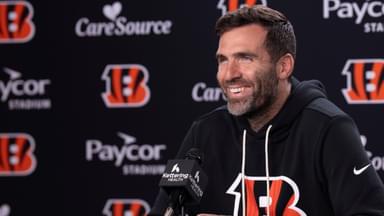The NFL, and football as a sport, used to be all about grit and grind. Physicality, toughness, violence. The biggest, baddest, and meanest players like Deacon Jones, Larry Csonka, Jack Lambert, and Earl Campbell ran the league back then. Not anymore.
Advertisement
There have been so many rule changes to reduce physicality in the league over the last decade and a half that some of the tough guys from the past might call today’s game unrecognizable. For instance, even as recently as the early 2000s, big hits were celebrated, not flagged.
There was even a popular segment on ESPN’s NFL show called ‘Jacked Up’, where the analysts went through the biggest hits of the weekend and poked fun at the players who took the hit before yelling in unison that they got “jacked up!” A show like that is unimaginable in today’s NFL.
Almost 90 percent of those “jacked up” hits would be labeled as penalties instead of big plays. Despite the dumbing down of the more physical aspects of the game, Cincinnati Bengals QB Joe Flacco believes the best teams still find a way to find the balance between physical play and penalized play.
“I think as we go down this lane of football, and what it’s turning into, and the way the rules have all changed. That football still comes down to physicality can get lost. I know it’s such an easy thing to point out and such a general statement. But the most physical teams are still the teams that are winning. The teams that find a way to do that,” Flacco said on Fitz and Whit.
Here are some of the rules that have reduced physicality from NFL football: There are now penalties for hits on defenseless receivers, hitting a QB below his knees, and landing with your full weight on a quarterback. In addition, chop blocks and double-team blocks on kickoffs are outlawed. And that’s just the tip of the iceberg.
However, because that emphasis on physicality has seemingly disappeared, the teams that build around the physical aspect of the game have tended to find success. Just look at the defending champions, the Philadelphia Eagles.
“And I just think because the game has gone towards speed, and guys getting smaller, and now you gotta worry about getting fined and penalized for every single hit you make. The rules have made it,” Flacco continued.
“It’s not just the speed and the style, but the rules have kind of made the game go that way to a certain extent. So I think when you’re building a team, sometimes you can get lost in the fact that you still have to find ways to be physical. And if you want to have a consistently good team, that’s the easiest way to do it,” he added.
Flacco is being more honest than he could be, considering these new rules have benefited him and older QBs like Tom Brady or Aaron Rodgers greatly.
But it’s nice to see those guys being more earnest about it. As Flacco also explained, defenders used to be allowed 2.5-3 steps toward the QB after the ball is thrown. Those penalty flags come out almost instantly these days.
A lot of the big, exciting hits have been removed from the game. But there is still a high level of physicality required to be a successful team deep into the playoffs. At least, that’s what Flacco thinks.







